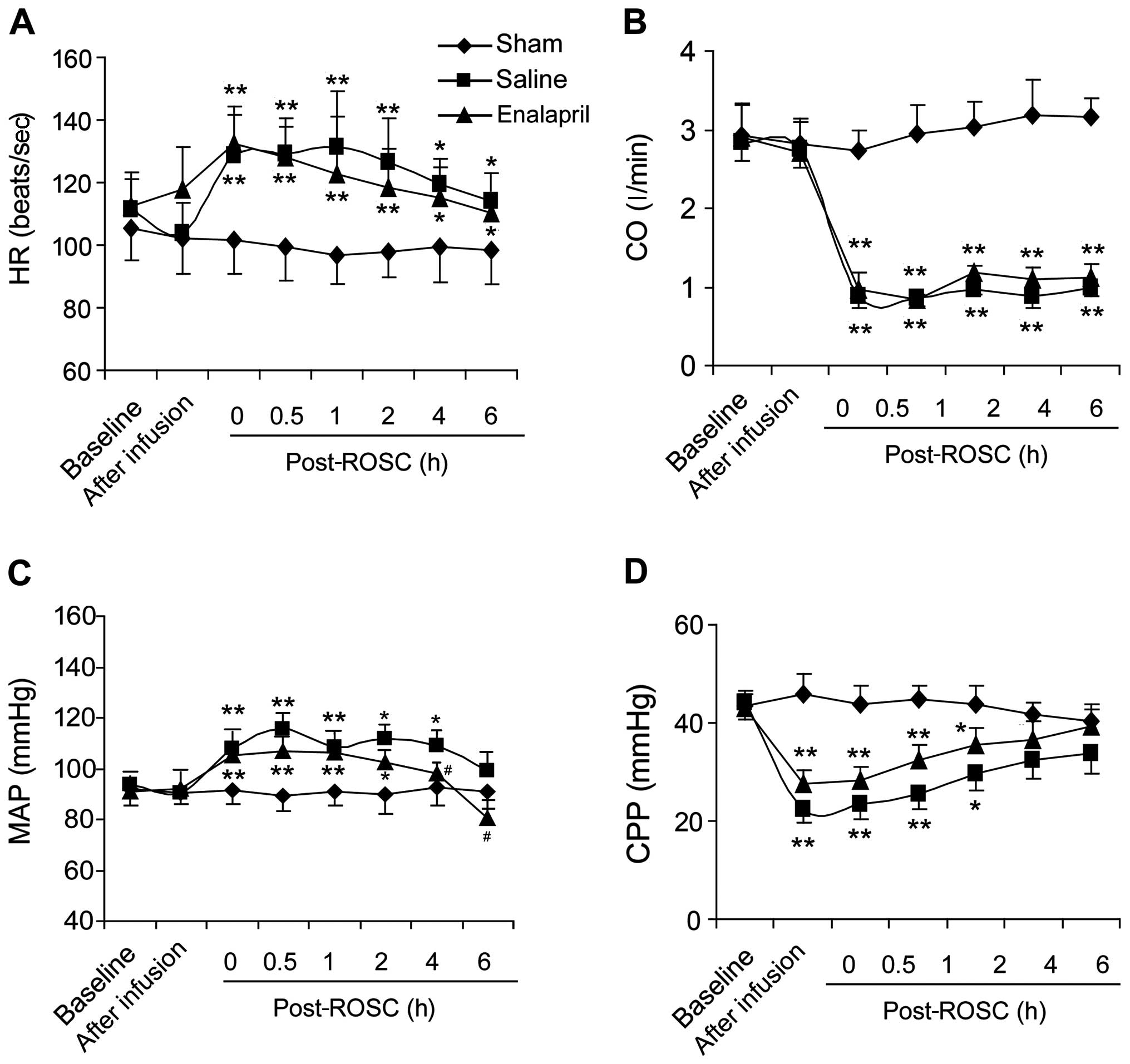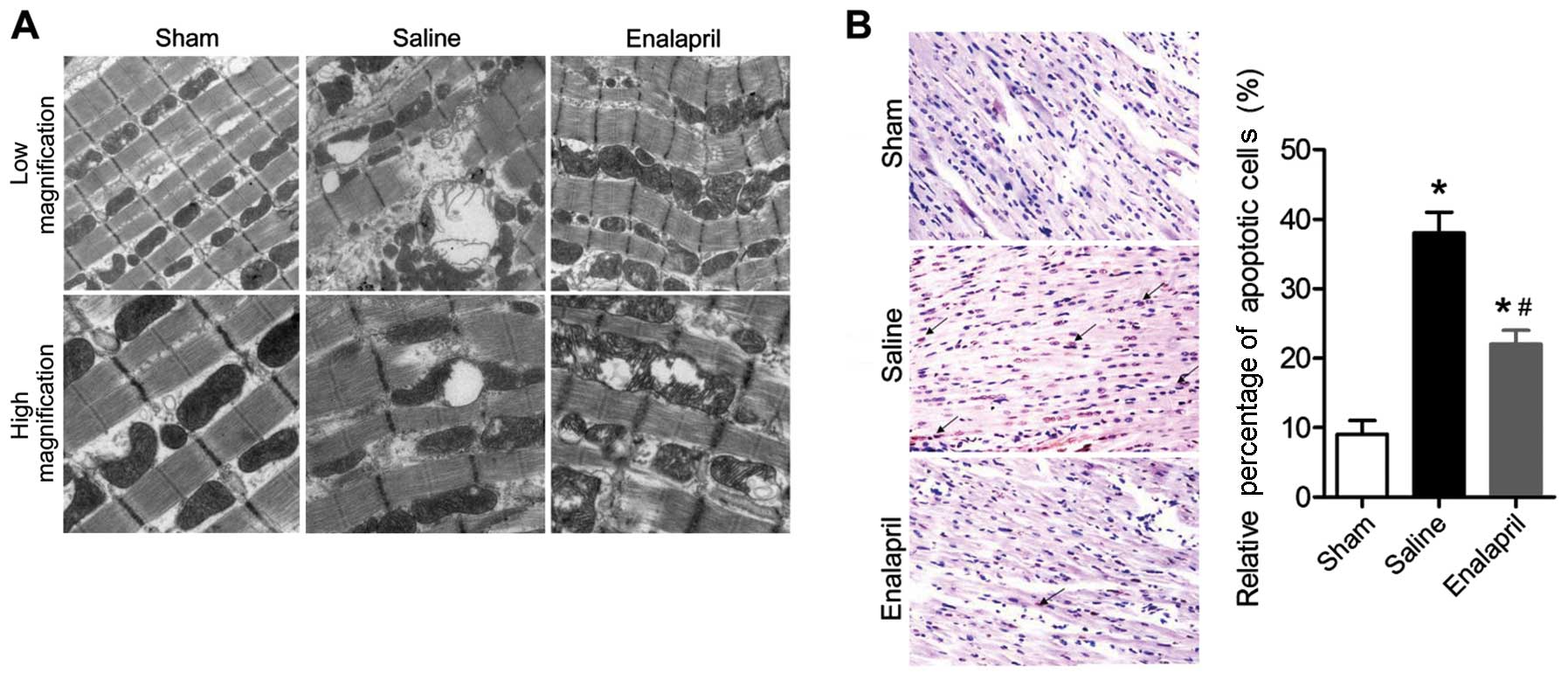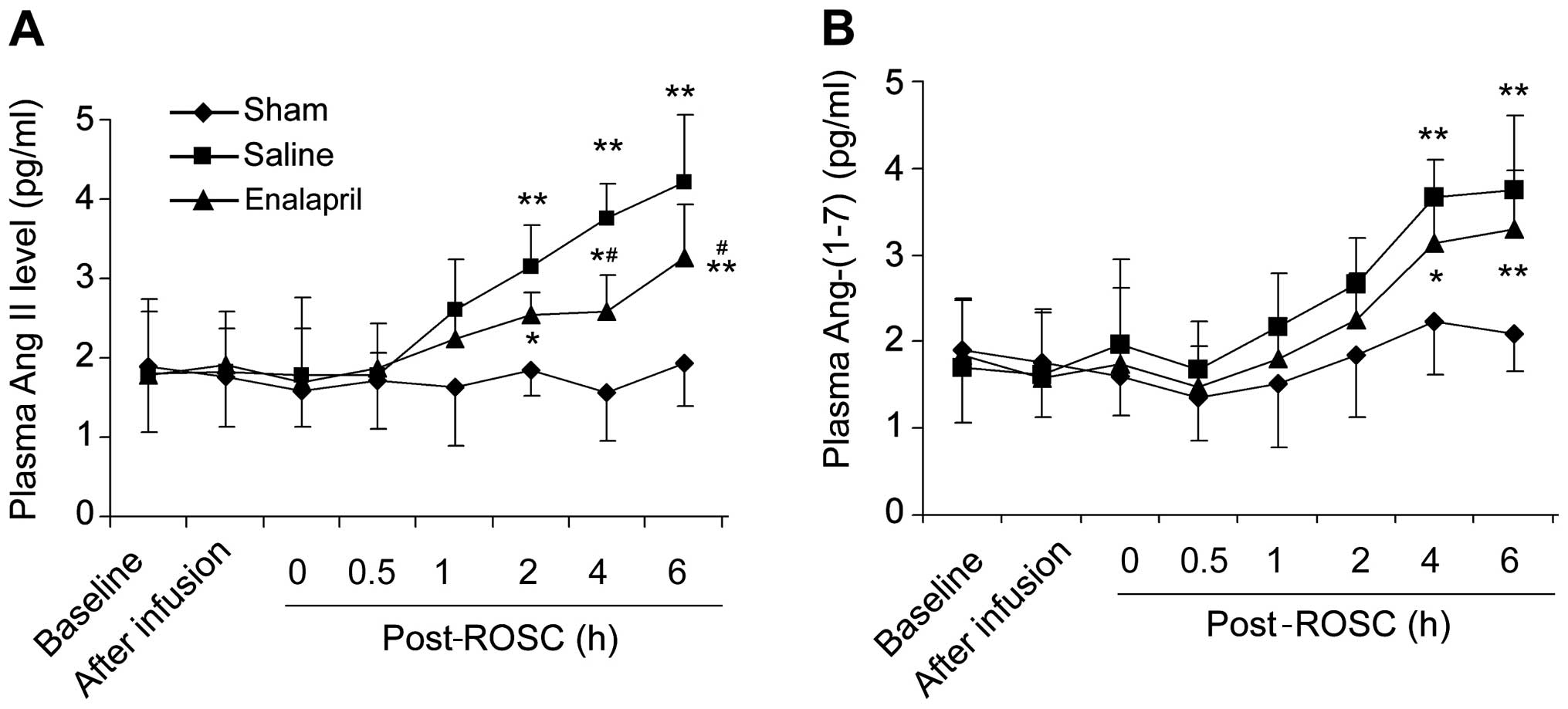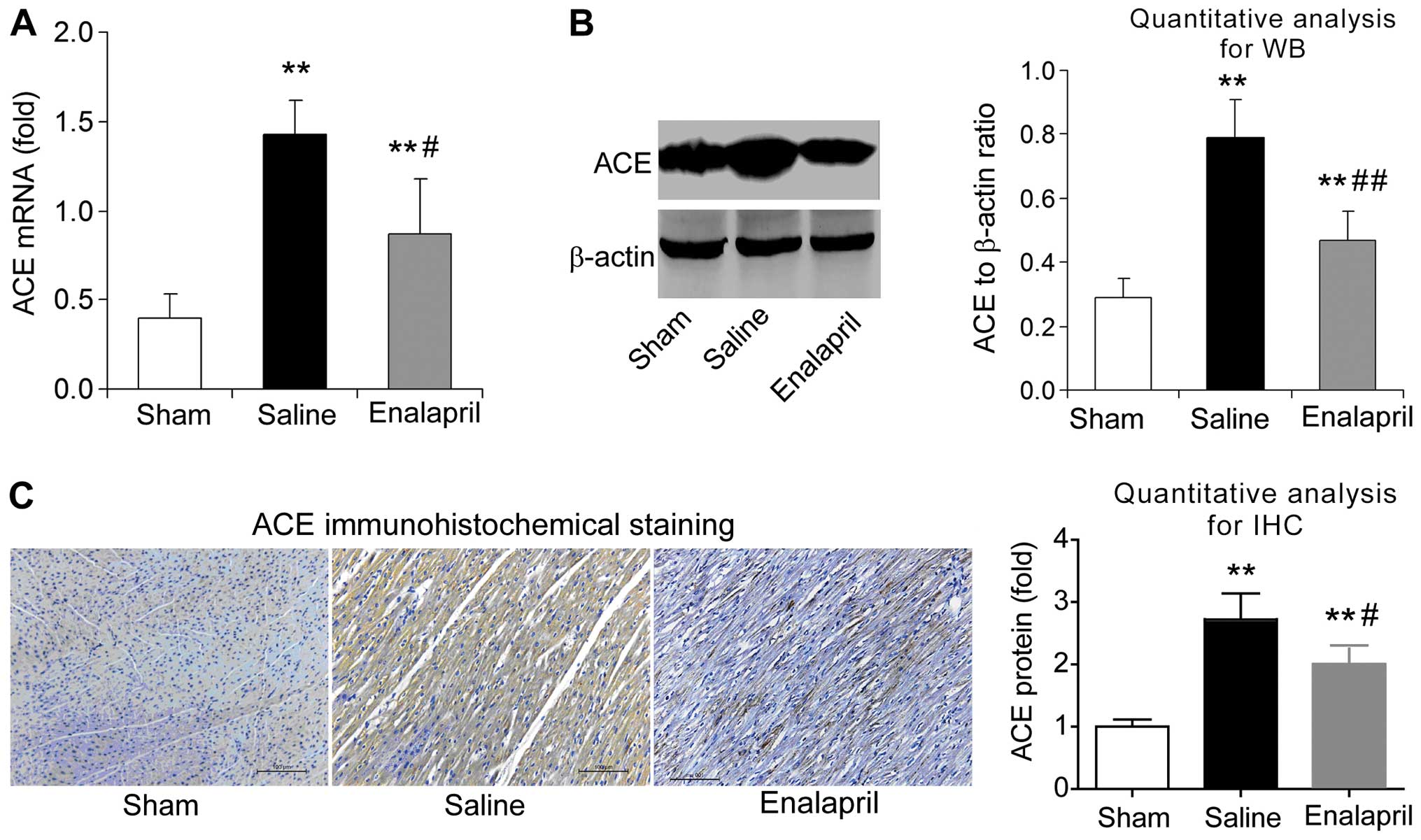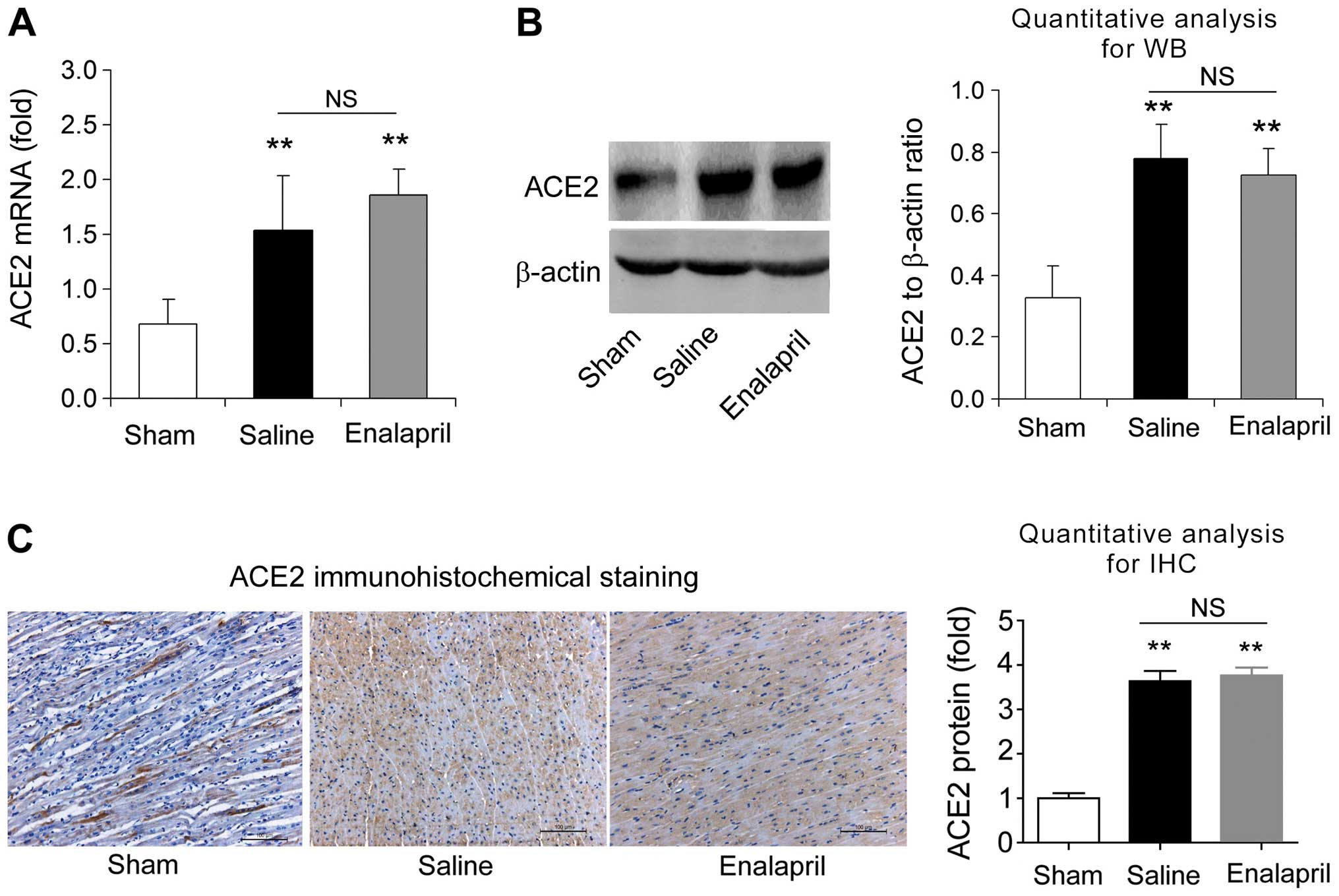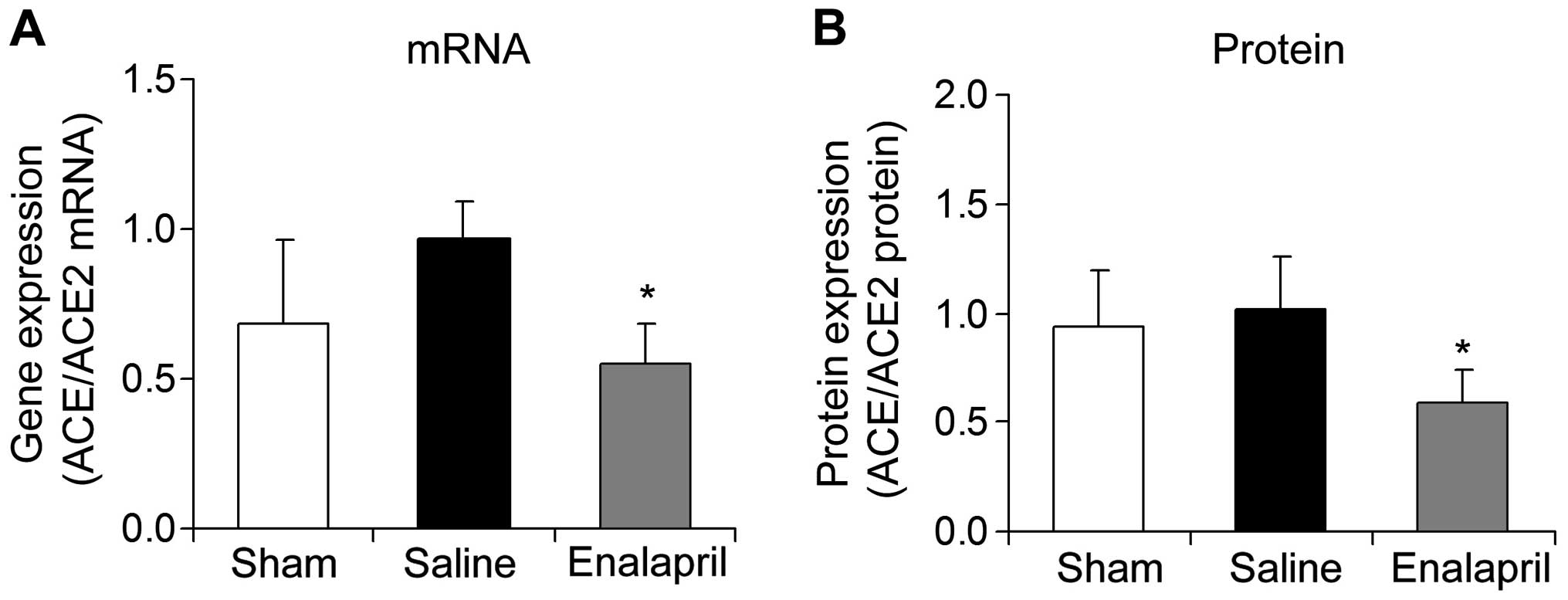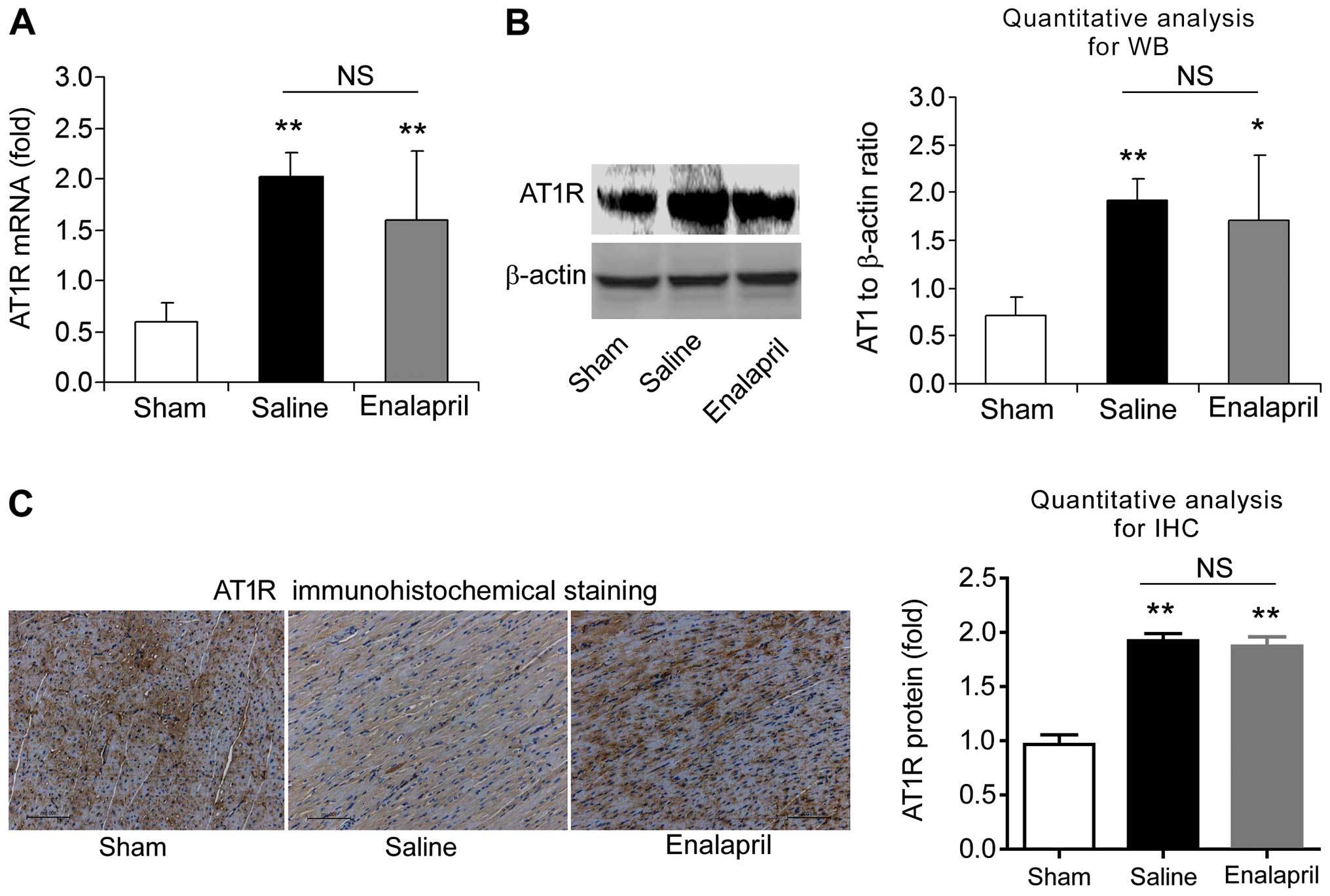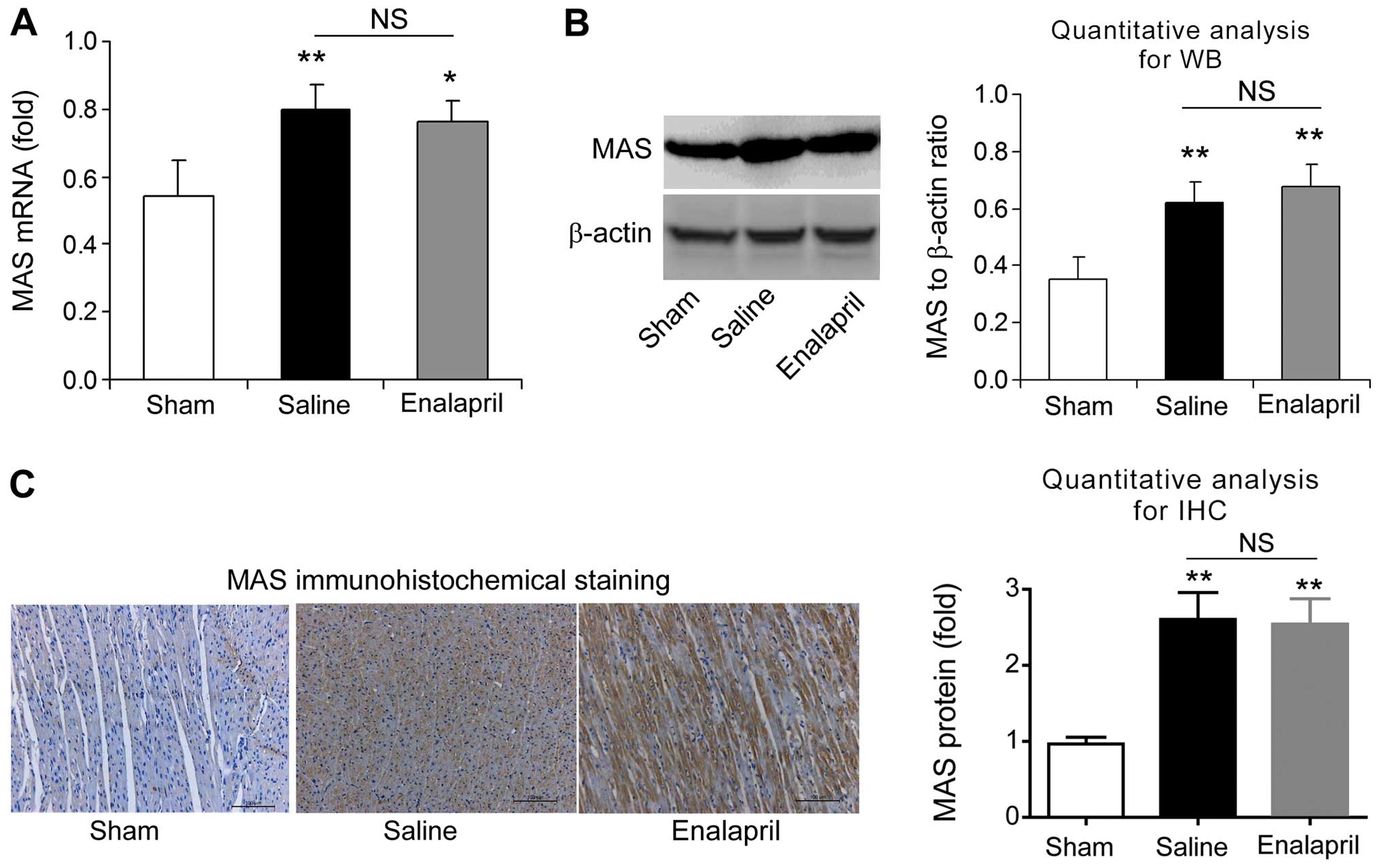|
1
|
Lerakis S, Hayek S, Arepalli CD, Thourani
V and Babaliaros V: Cardiac magnetic resonance for paravalvular
leaks in post-transcatheter aortic valve replacement. Circulation.
129:e430–e431. 2014. View Article : Google Scholar : PubMed/NCBI
|
|
2
|
Go AS, Mozaffarian D, Roger VL, Benjamin
EJ, Berry JD, Blaha MJ, Dai S, Ford ES, Fox CS, Franco S, et al
American Heart Association Statistics Committee and Stroke
Statistics Subcommittee: Heart disease and stroke statistics - 2014
update: a report from the American Heart Association. Circulation.
129:e28–e292. 2014. View Article : Google Scholar
|
|
3
|
Dumas F, White L, Stubbs BA, Cariou A and
Rea TD: Long-term prognosis following resuscitation from out of
hospital cardiac arrest: role of percutaneous coronary intervention
and therapeutic hypothermia. J Am Coll Cardiol. 60:21–27. 2012.
View Article : Google Scholar : PubMed/NCBI
|
|
4
|
Hypothermia after Cardiac Arrest Study
Group: Mild therapeutic hypothermia to improve the neurologic
outcome after cardiac arrest. N Engl J Med. 346:549–556. 2002.
View Article : Google Scholar : PubMed/NCBI
|
|
5
|
Stub D, Bernard S, Duffy SJ and Kaye DM:
Post cardiac arrest syndrome: a review of therapeutic strategies.
Circulation. 123:1428–1435. 2011. View Article : Google Scholar : PubMed/NCBI
|
|
6
|
Paul M, Poyan Mehr A and Kreutz R:
Physiology of local renin-angiotensin systems. Physiol Rev.
86:747–803. 2006. View Article : Google Scholar : PubMed/NCBI
|
|
7
|
Li K and Chen X: Protective effects of
captopril and enalapril on myocardial ischemia and reperfusion
damage of rat. J Mol Cell Cardiol. 19:909–915. 1987. View Article : Google Scholar : PubMed/NCBI
|
|
8
|
Sharma JN: The kallikrein-kinin system:
from mediator of inflammation to modulator of cardioprotection.
Inflammopharmacology. 12:591–596. 2005. View Article : Google Scholar : PubMed/NCBI
|
|
9
|
Kusch A, Hoff U, Bubalo G, Zhu Y, Fechner
M, Schmidt-Ullrich R, Marko L, Müller DN, Schmidt-Ott KM, Gürgen D,
et al: Novel signalling mechanisms and targets in renal ischaemia
and reperfusion injury. Acta Physiol (Oxf). 208:25–40. 2013.
View Article : Google Scholar
|
|
10
|
Geng Y, Li E, Mu Q, Zhang Y, Wei X, Li H,
Cheng L and Zhang B: Hydrogen sulfide inhalation decreases early
blood-brain barrier permeability and brain edema induced by cardiac
arrest and resuscitation. J Cereb Blood Flow Metab. 35:494–500.
2015. View Article : Google Scholar
|
|
11
|
Guo ZJ, Li CS, Yin WP, Hou XM, Gu W and
Zhang D: Comparison of shock-first strategy and cardiopulmonary
resuscitation-first strategy in a porcine model of prolonged
cardiac arrest. Resuscitation. 84:233–238. 2013. View Article : Google Scholar
|
|
12
|
Idris AH, Becker LB, Ornato JP, Hedges JR,
Bircher NG, Chandra NC, Cummins RO, Dick W, Ebmeyer U, Halperin HR,
et al Writing Group: Utstein-style guidelines for uniform reporting
of laboratory CPR research A statement for healthcare professionals
from a task force of the American Heart Association the American
College of Emergency Physicians, the American College of
Cardiology, the European Resuscitation Council, the Heart and
Stroke Foundation of Canada, the Institute of Critical Care
Medicine, the Safar Center for Resuscitation Research, and the
Society for Academic Emergency Medicine. Circulation. 94:2324–2336.
1996. View Article : Google Scholar : PubMed/NCBI
|
|
13
|
Wang S, Li C, Ji X, Yang L, Su Z and Wu J:
Effect of continuous compressions and 30:2 cardiopulmonary
resuscitation on global ventilation/perfusion values during
resuscitation in a porcine model. Crit Care Med. 38:2024–2030.
2010. View Article : Google Scholar : PubMed/NCBI
|
|
14
|
Pereira AJ, Jeger V, Fahrner R,
Djafarzadeh S, Lensch M, Takala J and Jakob SM: Interference of
angiotensin II and enalapril with hepatic blood flow regulation. Am
J Physiol Gastrointest Liver Physiol. 307:G655–G663. 2014.
View Article : Google Scholar : PubMed/NCBI
|
|
15
|
Gu W, Li CS, Yin WP, Hou XM, Zhang J,
Zhang D and Guo Z: Expression imbalance of transcription factors
GATA-3 and T-bet in post-resuscitation myocardial immune
dysfunction in a porcine model of cardiac arrest. Resuscitation.
84:848–853. 2013. View Article : Google Scholar
|
|
16
|
Zhang Q and Li C: Combination of
epinephrine with esmolol attenuates post-resuscitation myocardial
dysfunction in journalporcine model of cardiac arrest. PLoS One.
8:e826772013. View Article : Google Scholar
|
|
17
|
Ji XF, Li CS, Wang S, Yang L and Cong LH:
Comparison of the efficacy of nifekalant and amiodarone in a
porcine model of cardiac arrest. Resuscitation. 81:1031–1036. 2010.
View Article : Google Scholar : PubMed/NCBI
|
|
18
|
Valenzuela TD, Roe DJ, Cretin S, Spaite DW
and Larsen MP: Estimating effectiveness of cardiac arrest
interventions: a logistic regression survival model. Circulation.
96:3308–3313. 1997. View Article : Google Scholar : PubMed/NCBI
|
|
19
|
Wang P, Xu TY, Wei K, Guan YF, Wang X, Xu
H, Su DF, Pei G and Miao CY: ARRB1/β-arrestin-1 mediates
neuroprotection through coordination of BECN1-dependent autophagy
in cerebral ischemia. Autophagy. 10:1535–1548. 2014. View Article : Google Scholar : PubMed/NCBI
|
|
20
|
Wang YG, Li Y, Wang CY, Ai JW, Dong XY,
Huang HY, Feng ZY, Pan YM, Lin Y, Wang BX and Yao LL:
L-3-n-Butylphthalide protects rats' cardiomyocytes from
ischaemia/reperfusion-induced apoptosis by affecting the
mitochondrial apoptosis pathway. Acta Physiol (Oxf). 210:524–533.
2014. View Article : Google Scholar
|
|
21
|
Wang P, Du H, Zhou CC, Song J, Liu X, Cao
X, Mehta JL, Shi Y, Su DF and Miao CY: Intracellular
NAMPT-NAD+-SIRT1 cascade improves post-ischaemic
vascular repair by modulating Notch signalling in endothelial
progenitors. Cardiovasc Res. 104:477–488. 2014. View Article : Google Scholar : PubMed/NCBI
|
|
22
|
Ragone MI, Torres NS and Consolini AE:
Energetic study of cardioplegic hearts under ischaemia/reperfusion
and [Ca(2+)] changes in cardiomyocytes of guinea-pig:
mitochondrial role. Acta Physiol (Oxf). 207:369–384. 2013.
View Article : Google Scholar
|
|
23
|
Wang P, Xu TY, Guan YF, Zhao Y, Li ZY, Lan
XH, Wang X, Yang PY, Kang ZM, Vanhoutte PM and Miao CY: Vascular
smooth muscle cell apoptosis is an early trigger for hypothyroid
atherosclerosis. Cardiovasc Res. 102:448–459. 2014. View Article : Google Scholar : PubMed/NCBI
|
|
24
|
Wang P, Xu TY, Guan YF, Tian WW, Viollet
B, Rui YC, Zhai QW, Su DF and Miao CY: Nicotinamide
phosphoribosyltransferase protects against ischemic stroke through
SIRT1-dependent adenosine monophosphate-activated kinase pathway.
Ann Neurol. 69:360–374. 2011. View Article : Google Scholar : PubMed/NCBI
|
|
25
|
Wang P, Guan YF, Du H, Zhai QW, Su DF and
Miao CY: Induction of autophagy contributes to the neuroprotection
of nicotinamide phosphoribosyltransferase in cerebral ischemia.
Autophagy. 8:77–87. 2012. View Article : Google Scholar
|
|
26
|
Wang P, Xu TY, Guan YF, Su DF, Fan GR and
Miao CY: Perivascular adipose tissue-derived visfatin is a vascular
smooth muscle cell growth factor: role of nicotinamide
mononucleotide. Cardiovasc Res. 81:370–380. 2009. View Article : Google Scholar
|
|
27
|
Mapanga RF, Joseph D, Symington B, Garson
KL, Kimar C, Kelly-Laubscher R and Essop MF: Detrimental effects of
acute hyperglycaemia on the rat heart. Acta Physiol (Oxf).
210:546–564. 2014. View Article : Google Scholar
|
|
28
|
Reynolds JC and Lawner BJ: Management of
the post-cardiac arrest syndrome. J Emerg Med. 42:440–449. 2012.
View Article : Google Scholar : PubMed/NCBI
|
|
29
|
Gu W, Li CS, Yin WP, Guo ZJ, Hou XM and
Zhang D: Apoptosis is involved in the mechanism of
postresuscitation myocardial dysfunction in a porcine model of
cardiac arrest. Am J Emerg Med. 30:2039–2045. 2012. View Article : Google Scholar : PubMed/NCBI
|
|
30
|
Wang S, Radhakrishnan J, Ayoub IM,
Kolarova JD, Taglieri DM and Gazmuri RJ: Limiting sarcolemmal
Na+ entry during resuscitation from ventricular
fibrillation prevents excess mitochondrial Ca2+
accumulation and attenuates myocardial injury. J Appl Physiol
(1985). 103:55–65. 2007. View Article : Google Scholar
|
|
31
|
Adams JA: Endothelium and cardiopulmonary
resuscitation. Crit Care Med. 34(Suppl): S458–S465. 2006.
View Article : Google Scholar : PubMed/NCBI
|
|
32
|
Lant AF, McNabb RW and Noormohamed FH:
Kinetic and metabolic aspects of enalapril action. J Hypertens
Suppl. 2:S37–S42. 1984.PubMed/NCBI
|
|
33
|
Doğan R, Farsak B, Tuncer M and Demirpençe
E: Attenuation of ischemia-reperfusion injury by enalapril maleat.
Gen Pharmacol. 31:203–208. 1998. View Article : Google Scholar
|
|
34
|
Montalescot G, Drexler H, Gallo R, Pearson
T, Thoenes M and Bhatt DL: Effect of irbesartan and enalapril in
non-ST elevation acute coronary syndrome: Results of the
randomized, double-blind ARCHIPELAGO study. Eur Heart J.
30:2733–2741. 2009. View Article : Google Scholar : PubMed/NCBI
|
|
35
|
Miclescu A, Sharma HS, Martijn C and
Wiklund L: Methylene blue protects the cortical blood-brain barrier
against ischemia/reperfusion-induced disruptions. Crit Care Med.
38:2199–2206. 2010. View Article : Google Scholar : PubMed/NCBI
|
|
36
|
Hoyer A, Kempfert J, Pritzwald-Stegmann P,
Mohr FW and Dhein S: Acute hemodynamic effects of
angiotensin-converting enzyme inhibition after prolonged cardiac
arrest with Bretschneider's solution. Naunyn Schmiedebergs Arch
Pharmacol. 387:1221–1229. 2014. View Article : Google Scholar : PubMed/NCBI
|
|
37
|
Wu B, Lin R, Dai R, Chen C, Wu H and Hong
M: Valsartan attenuates oxidative stress and NF-κB activation and
reduces myocardial apoptosis after ischemia and reperfusion. Eur J
Pharmacol. 705:140–147. 2013. View Article : Google Scholar : PubMed/NCBI
|
|
38
|
Kobara M, Tatsumi T, Kambayashi D, Mano A,
Yamanaka S, Shiraishi J, Keira N, Matoba S, Asayama J, Fushiki S
and Nakagawa M: Effects of ACE inhibition on myocardial apoptosis
in an ischemia-reperfusion rat heart model. J Cardiovasc Pharmacol.
41:880–889. 2003. View Article : Google Scholar : PubMed/NCBI
|
|
39
|
Bjerregaard J and Jaffe RA: Intraoperative
cardiac arrest: was it the ACE inhibitor? J Clin Anesth. 26:62–64.
2014. View Article : Google Scholar : PubMed/NCBI
|
|
40
|
Chua HR, Glassford N and Bellomo R: Acute
kidney injury after cardiac arrest. Resuscitation. 83:721–727.
2012. View Article : Google Scholar
|
|
41
|
Zhang Y, Boddicker KA, Rhee BJ, Davies LR
and Kerber RE: Effect of nitric oxide synthase modulation on
resuscitation success in a swine ventricular fibrillation cardiac
arrest model. Resuscitation. 67:127–134. 2005. View Article : Google Scholar : PubMed/NCBI
|
|
42
|
Marques Neto SR, da H Silva A, dos Santos
MC, Ferraz EF and Nascimento JH: The blockade of angiotensin AT1
and aldosterone receptors protects rats from synthetic
androgen-induced cardiac autonomic dysfunction. Acta Physiol (Oxf).
208:166–171. 2013. View Article : Google Scholar
|
|
43
|
Biwer LA, Broderick TL, Xu H, Carroll C
and Hale TM: Protection against L-NAME-induced reduction in cardiac
output persists even after cessation of angiotensin-converting
enzyme inhibitor treatment. Acta Physiol (Oxf). 207:156–165. 2013.
View Article : Google Scholar
|
|
44
|
Paradis NA, Rose MI and Garg U: The effect
of global ischemia and reperfusion on the plasma levels of
vasoactive peptides. The neuroendocrine response to cardiac arrest
and resuscitation Resuscitation. 26:261–269. 1993.
|
|
45
|
Soler MJ, Wysocki J and Batlle D: ACE2
alterations in kidney disease. Nephrol Dial Transplant.
28:2687–2697. 2013. View Article : Google Scholar : PubMed/NCBI
|
|
46
|
Varagic J, Ahmad S, Nagata S and Ferrario
CM: ACE2: Angiotensin II/angiotensin-(1–7) balance in cardiac and
renal injury. Curr Hypertens Rep. 16:4202014. View Article : Google Scholar
|
|
47
|
Bernardi S, Toffoli B, Zennaro C, Tikellis
C, Monticone S, Losurdo P, Bellini G, Thomas MC, Fallo F, Veglio F,
et al: High-salt diet increases glomerular ACE/ACE2 ratio leading
to oxidative stress and kidney damage. Nephrol Dial Transplant.
27:1793–1800. 2012. View Article : Google Scholar
|
|
48
|
Liu R, Qi H, Wang J, Wang Y, Cui L, Wen Y
and Yin C: Angiotensin-converting enzyme (ACE and ACE2) imbalance
correlates with the severity of cerulein-induced acute pancreatitis
in mice. Exp Physiol. 99:651–663. 2014. View Article : Google Scholar : PubMed/NCBI
|
|
49
|
Hsieh WY, Kuan TC, Cheng KS, Liao YC, Chen
MY, Lin PH, Hsu YC, Huang CY, Hsu WH, Yu SY and Lin CS: ACE/ACE2
ratio and MMP-9 activity as potential biomarkers in tuberculous
pleural effusions. Int J Biol Sci. 8:1197–1205. 2012. View Article : Google Scholar : PubMed/NCBI
|















